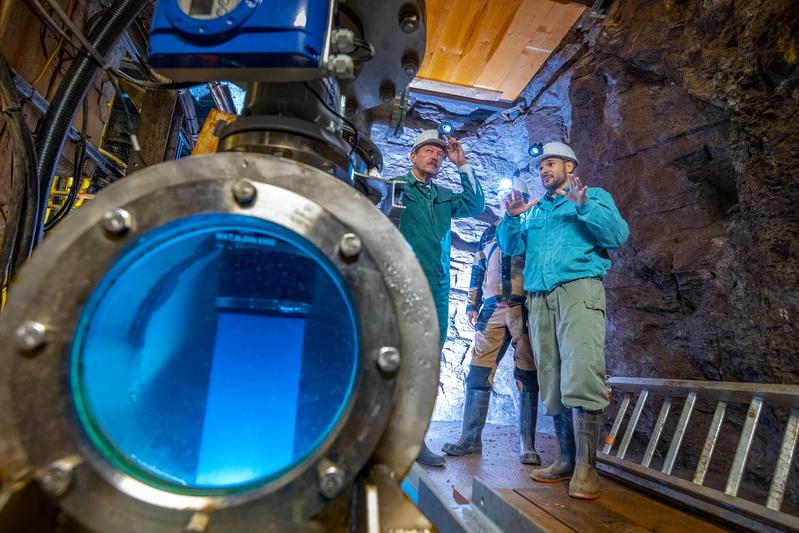
"Airlift" facility: TU Freiberg tests new mining technology in research and training mine

(f.l.) Prof. Carsten Drebenstedt, Wolfgang Gaßner and Shevchenko Oleksandr at the new "Airlift" facility in the research and training mine.
Photo: Detlev Müller / TU Bergakademie Freiberg
On the new six-metre-high test rig, researchers at the Technische Universiät Bergakademie Freiberg are testing the transport of the crushed material to the surface via a borehole.
The material is sucked out of a closed cavern (underground cavity) and crushed with the aid of compressed air and water and transported to the surface.
“The intervention at the surface is minimal. The resulting cavities are later filled again. Nobody has to go underground,” explains Prof. Drebenstedt.
The Freiberg scientists are now investigating the optimum operating parameters for the new borehole technology in a practical manner in the new “Airlift” facility in the university's own research and training mine “Reiche Zeche”.
The results should provide information about the operating conditions, performance and costs of the plant, which will be built in 2020 as an industrial pilot plant in Katowice, Poland.
The process can be used to extract various raw materials. Initial experience has been gained with uranium, phosphate and coal.
The research work is part of the research project “HydroCoal Plus” funded by the European Union within the framework of “HORIZON 2020 / 7th Research Framework Programme” and will be carried out together with Polish and Czech experts.
Prof. Dr. Carsten Drebenstedt, Phone: +49 3731/39-3373












